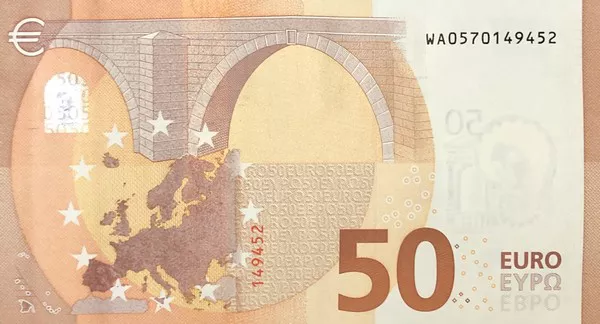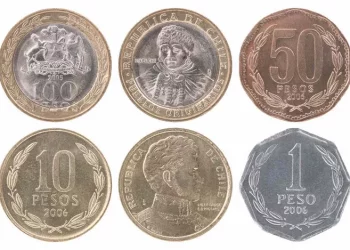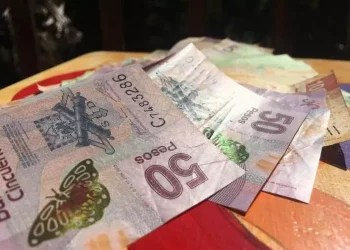Current Exchange Rate
The exchange rate between the euro (EUR) and the British pound (GBP) is a crucial piece of information for individuals and businesses engaged in cross-border transactions. Exchange rates fluctuate constantly due to various economic, political, and market factors. As of today, the exchange rate is approximately 1 EUR = 0.86 GBP. This means that 72 euros would be equivalent to about 61.92 pounds. However, it’s essential to check the latest rates for precise conversion.
Conversion Calculation
To convert 72 euros into pounds, you use the current exchange rate:
Amount in GBP=Amount in EUR×Exchange Rate
Given the current rate of 1 EUR = 0.86 GBP:
72 EUR×0.86 GBP/EUR=61.92 GBP
Exchange rates can be found through financial news websites, currency converter tools, banks, and other financial institutions. It’s important to note that the rates provided by different sources can vary slightly due to the timing of the update and the inclusion of service fees or commissions.
Factors Influencing Exchange Rates
Several factors influence the exchange rates between currencies:
1. Economic Indicators:
Economic data such as GDP growth rates, employment statistics, inflation rates, and manufacturing output can significantly affect exchange rates. Strong economic performance typically strengthens a country’s currency, while weak performance can lead to depreciation.
2. Interest Rates:
Central banks, such as the European Central Bank (ECB) and the Bank of England (BoE), influence exchange rates through monetary policy. Higher interest rates offer lenders in an economy a higher return relative to other countries. Therefore, higher interest rates attract foreign capital and cause an appreciation of the currency.
3. Political Stability and Performance:
Countries with less risk for political turmoil are more attractive to foreign investors. Political stability ensures that a country can maintain economic growth, influencing the value of its currency positively.
4. Market Speculation:
Currency traders’ perceptions and speculations can cause fluctuations in exchange rates. If traders believe a currency will strengthen in the future, they will buy more of that currency, increasing its value.
5. Inflation Rates:
Generally, countries with lower inflation rates see an appreciation in their currency value. This is because purchasing power increases relative to other currencies with higher inflation.
6. Public Debt:
Countries with large public debts are less attractive to foreign investors due to the risk of inflation and default. As a result, a country with significant public debt will often see its currency depreciate.
Forecast and Trends
1. Brexit Impact:
The departure of the UK from the European Union has had a profound impact on the EUR/GBP exchange rate. Political decisions and trade negotiations related to Brexit have caused significant volatility and will continue to do so as the UK and EU navigate their post-Brexit relationship.
2. Economic Recovery Post-Pandemic:
Both the Eurozone and the UK have faced economic challenges due to the COVID-19 pandemic. The speed and strength of economic recovery, driven by vaccination rollouts, government support, and reopening of economies, will influence future exchange rates.
3. Long-Term Trends:
Historically, the EUR/GBP exchange rate has seen fluctuations influenced by relative economic performance, political developments, and external shocks. Understanding these historical trends can provide insights into future movements.
4. Technological Advancements:
Innovations in financial technology, such as blockchain and digital currencies, may also play a role in future exchange rate dynamics by increasing the efficiency and transparency of currency transactions.
Financial Advice
1. Timing of Currency Exchange:
For individuals and businesses needing to convert currencies, timing can be crucial. Monitoring exchange rates and understanding the factors that influence them can help in making more informed decisions.
2. Use of Hedging Strategies:
Businesses involved in international trade can use hedging strategies to protect against unfavorable currency movements. Forward contracts, options, and other financial instruments can lock in exchange rates for future transactions.
See Also:Converting 200 Euros to Pounds
3. Diversification:
Investors should consider diversifying their portfolios to mitigate risks associated with currency fluctuations. Including assets denominated in various currencies can help in balancing potential losses in one currency with gains in another.
4. Professional Guidance:
Seeking advice from financial advisors or currency experts can provide personalized insights and strategies tailored to specific financial goals and risk tolerance.
Legal and Tax Implications
1. Currency Gains and Losses:
Individuals and businesses must account for currency gains and losses when filing taxes. These can be realized or unrealized and are often subject to specific regulations depending on the country.
2. Compliance with Reporting Standards:
Companies engaged in international trade must comply with various reporting standards and regulations. This includes accurately reporting currency transactions and adhering to anti-money laundering laws.
3. Cross-Border Transactions:
For businesses operating across borders, understanding the legal implications of currency exchange is crucial. This includes compliance with international trade laws and tax treaties that may affect how transactions are taxed.
Economic Indicators
1. GDP Growth Rates:
Gross Domestic Product (GDP) growth rates are a significant indicator of economic health. Higher GDP growth rates indicate a robust economy, which generally strengthens the currency.
See Also:90 Euros in US Dollars
2. Employment Rates:
Employment rates reflect the health of the labor market. Higher employment rates usually correlate with higher consumer spending and economic growth, positively impacting the currency.
3. Inflation Rates:
Inflation rates affect purchasing power and are closely monitored by central banks. Controlled inflation is a sign of a stable economy, while hyperinflation can devalue a currency.
4. Trade Balances:
A country’s trade balance (exports vs. imports) affects its currency value. A trade surplus typically strengthens the currency, while a trade deficit can weaken it.
Global Market Impact
1. International Trade:
Exchange rates significantly impact international trade. A weaker currency makes exports cheaper and more competitive, while a stronger currency can make imports cheaper for consumers.
2. Foreign Investment:
Exchange rates influence foreign direct investment (FDI). Stable and strong currencies attract more FDI as they reduce the risk of currency depreciation.
3. Tourism:
Tourism is another sector affected by exchange rates. A weaker currency makes a destination cheaper for foreign tourists, potentially boosting tourism revenues.
4. Remittances:
Exchange rates affect remittances sent by expatriates to their home countries. A favorable exchange rate increases the value of remittances, supporting household incomes in the recipient country.
Conclusion
Understanding how much 72 euros are in pounds involves more than a simple conversion. It requires an appreciation of the factors influencing exchange rates, including economic indicators, political stability, and market speculation. Keeping an eye on trends and forecasts can help individuals and businesses make informed financial decisions. Legal and tax implications must also be considered, as currency gains and losses can impact financial reporting and compliance. In a globalized economy, exchange rates have far-reaching effects on trade, investment, tourism, and remittances, highlighting the interconnectedness of international markets. By staying informed and seeking professional advice, stakeholders can navigate the complexities of currency exchange more effectively.
Related Topics:


























